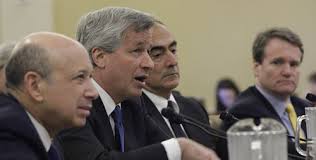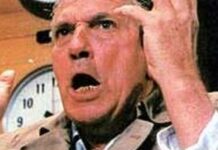As President Obama leaves office this month after two terms, people should rightfully assess his achievements, especially those related to financial reform after the largest recession since the Great Depression.

But for those who take the time, Obama’s financial reform legacy is non-existent. He had a Democratic majority at the time when the nation’s largest banks manipulated the housing market for their own gain and caused millions of Americans to lose their homes, accompanied by many more who saw their home prices and individual net worths plummet. Obama and his Justice Department, SEC and Treasury Department all knew the systemic fraud was centered at the nation’s largest banks, and the public clamored for some justice and public punishments of those responsible.
But in this interesting account from the web site Truthdig, author Paul Street provides a great assessment of Obama’s failed ersatz “Progressive” politics and shows him for what he was, a center-right Democrat who did very little to advance the long-term interests of millions of Americans.
So for those interested in how Obama failed to reform the self-serving financial system when he had the votes to do it, here is a chilling account just adopted the Wall Street attitude of earlier Republicans and did noting to advance needed financial reform. This failure to put any bankers in jail later gave Donald Trump the edge over Hillary Clinton, while it became a cornerstone of Bernie Sander’s campaign to curtail the system corruption of unregulated Capitalism.
The following is cited from the article, “Barack Obama’s Neoliberal Legacy: Rightward Drift and Donald Trump, by Paul Street from Truthdig, posted Jan. 3, 2017. This article should be required reading for anyone interested in why Obama failed as a leader to push for financial reform.
“The first year, when Obama’s party had Congress, was key. In the book “Confidence Men: Wall Street, Washington, and the Education of a President” (2011), Pulitzer Prize-winning author Ron Suskind told a remarkable story from March of 2009. Three months into Obama’s presidency, popular rage at Wall Street was intense, and the leading financial institutions were weak and on the defensive. The nation’s financial elite had driven the nation and world’s economy into an epic meltdown—and millions knew it.
“Having ridden into office partly on a wave of popular anger at the economic power elite’s staggering malfeasance, Obama called a meeting of the nation’s top 13 financial executives at the White House. The banking titans came into the gathering full of dread, only to leave pleased to learn that the new president was in their camp. Instead of standing up for those who had been harmed most by the crisis—workers, minorities and the poor—Obama sided unequivocally with those who had caused the meltdown.
““My administration is the only thing between you and the pitchforks,” Obama said. “You guys have an acute public relations problem that’s turning into a political problem. And I want to help. … I’m not here to go after you. I’m protecting you … I’m going to shield you from congressional and public anger.”
“For the banking elite, who had destroyed untold millions of jobs, there was, as Suskind put it, “Nothing to worry about. Whereas [President Franklin Delano] Roosevelt had [during the Great Depression] pushed for tough, viciously opposed reforms of Wall Street and famously said, ‘I welcome their hate,’ Obama was saying, ‘How can I help?’ ”
““The sense of everyone after the meeting,” one leading banker told Suskind, “was relief. The president had us at a moment of real vulnerability. At that point, he could have ordered us to do just about anything, and we would have rolled over. But he didn’t—he mostly wanted to help us out, to quell the mob.”
“The massive taxpayer bailout of the super fat cats would continue, along with numerous other forms of corporate welfare for the powerful and parasitic super-rich. This state-capitalist largesse was unaccompanied by any serious effort to regulate their conduct or by any remotely comparable bailout for the millions evicted from their homes and jobs by the not-so-invisible hand of the marketplace. No wonder 95 percent of national U.S. income gains went to the top 1 percent during Obama’s first term.”











